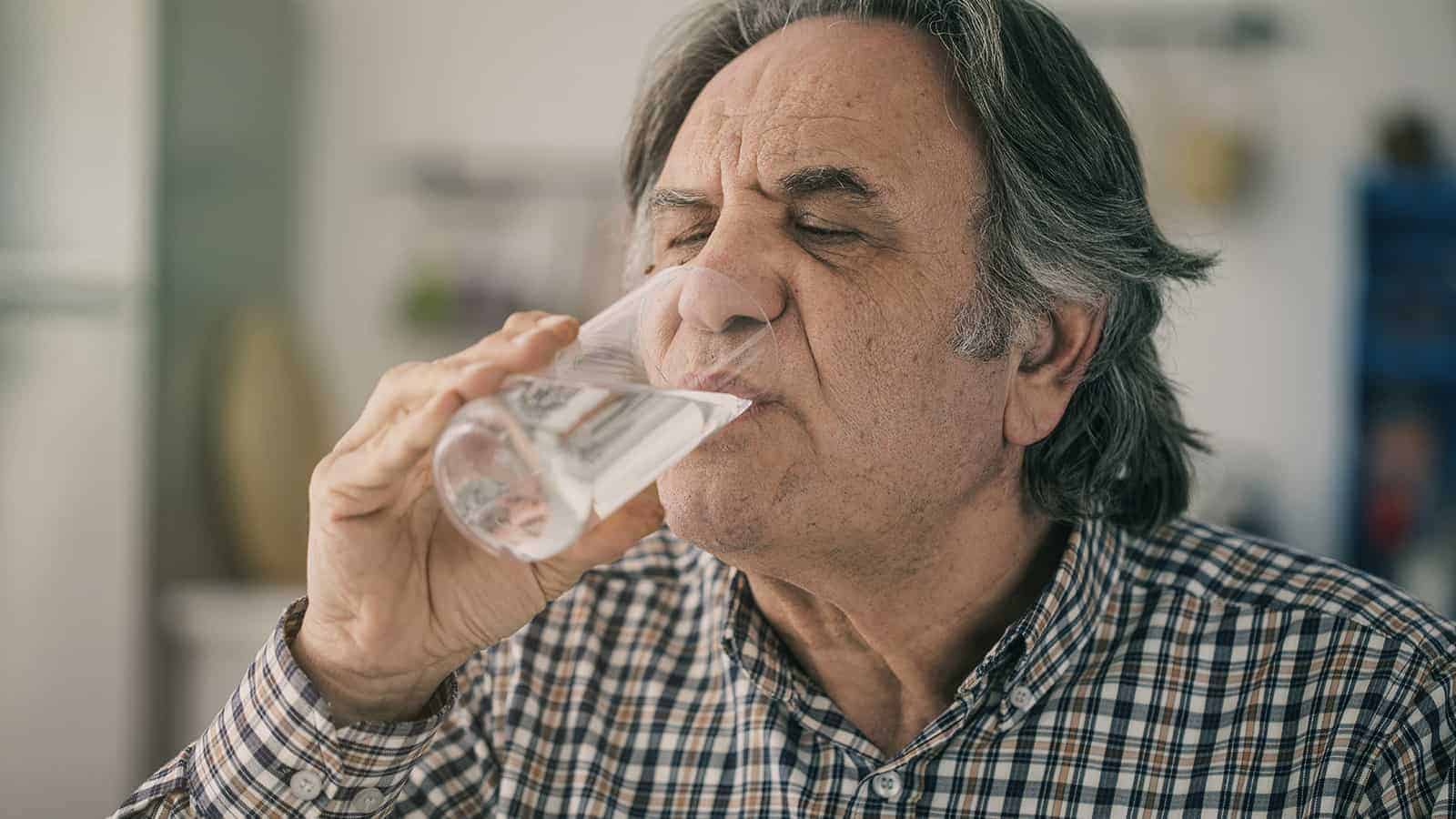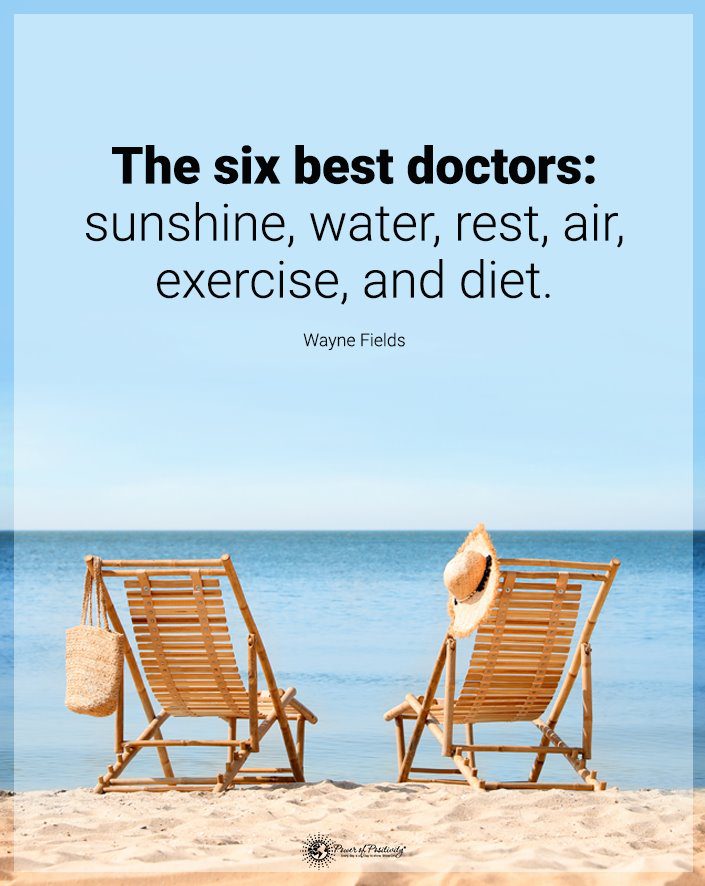You know that drinking plenty of water is essential to life and optimal health. Fortunately, your body has an internal cue that will alert you when you’re thirsty. But what do you do if your urge to drink is going overboard?
When you enjoy a cool, refreshing glass of water, you’re doing your body a favor. An article published by the United States Geological Survey claims that your body is at least 60 percent water. Water lubricates your body, flushes away toxins, and builds cells in your blood, among its many benefits.
Your body creates the sensation of thirst when your fluid levels are low. An article published by Wonderopolis states that most people could only survive three to five days without water. Just thinking about that statistic can cause thirstiness.
Why Are You So Thirsty?
Did you know that by the time you feel the urge to guzzle some water, you’re probably already dehydrated? This condition may be subtle, but it can have serious health consequences. You’re especially vulnerable during hot weather when you sweat a lot, so it’s essential to recognize these signs:
•Extreme thirst
•Dry, pale skin
•Dry, sticky tongue and mouth
•Minimal urine output
•Dark, foul-smelling urine
In extreme cases:
•Rapid pulse and respiration
•Reduced urine output
•Fatigue
•Headache
•Nausea
•Fainting
Unless you have medical restrictions to the contrary, feel free to have a glass of water at the first sign of thirst. What if you down one glass of water after another and still crave more? Are you dehydrated, or could there be another explanation?
First, humans are highly suggestive, and just seeing or thinking about refreshing water boosts your thirst. If you eat a lot of salty food, the sodium can cause an imbalance of body fluid, and you must have more to drink. Now, you know why so many bars offer free peanuts, pretzels, or popcorn.
Another fascinating fact about thirst is that your body may mistake it for hunger. According to an article published by the PDK Foundation, at least 37 percent of people may be eating when they should be drinking. According to the report, many people with kidney disease often have a weak thirst signal.
You get the fluid intake you need from drinking pure water. Some sources you find may vary a bit as to how much water you need to drink each day to be healthy. An article published by the Mayo Clinic recommends at least 11.5 cups a day for women and at least 15.5 cups for men.
Some of your water intake needs are provided by water-based beverages. You even get a certain amount of water from the juicy veggies and fruit you eat. However, your body still needs more hydration for your best health.
Ten Reasons Why You’re Thirsty All the Time
What if you drink your daily recommendation of water, eat plenty of plant-based foods, and still can’t quench your thirst? Is it something physical or psychological? Here are the top 10 reasons you may crave more to drink.
1. Dry Mouth
It’s normal when you awaken in the morning, and you feel like you have a mouth full of dry cotton. You want to get a cold drink of water and then brush your teeth to banish that dreadful morning breath. However, if these symptoms persist and you’re parched throughout the day, you could have chronic dry mouth.
Xerostomia, or dry mouth, is a condition where you don’t produce enough saliva. The membranes in your mouth and throat lose moisture and feel dry and scratchy. A dry mouth often makes you feel thirsty and may cause bad breath and swallowing issues.
2. Type 1 or 2 Diabetes May Cause You to Feel Thirsty
If you’ve been diagnosed with Diabetes Type 1 or 2, it poses potential risks to your body, especially your kidneys. According to an article published by the Mayo Clinic, your kidneys are forced to work overtime when your blood sugar is high. You’ll experience frequent urination, which will cause you to be thirsty all the time.
Both are classic symptoms of either type of diabetes. Each sign reacts to the other until you are constantly drinking and going to the bathroom. If you have these frustrating symptoms, consider being checked for diabetes.
3. You’re Eating Diuretic Foods
Did you know that many healthy foods may reduce your body’s fluid levels and make you thirsty? This characteristic is called a diuretic, which can make you urinate more frequently. While that’s good if you retain excess fluid, you will also feel the urge to drink more water.
Common diuretic foods include many fruits like apples, berries, and lemons. Also, you may get a fluid reduction effect from veggies like celery, beets, tomatoes, and avocados. However, consuming a balanced diet rich in fiber can keep excessive urination and thirst in check.
4. Chronic Stress
The human survival instinct evolved in response to life-threatening stressors. As soon as your brain perceives danger, it sends an immediate stress alert to your body. Your endocrine system pumps adrenaline and cortisol into your bloodstream to give you the extra strength and agility to run, fight, faint, or freeze.
This lifesaving process was only meant for emergencies, not as a constant. Battling chronic stress keeps this instinct on autopilot and can exhaust your body, including your kidneys. Since you urinate more, your stressed body will constantly tell you that you’re thirsty.
5. You Might Be Thirsty Due to Your Menstrual Cycle
As a woman, you may dread your monthly visitor because of all the frustrating symptoms, especially if you have PMS. The rising levels of estrogen and progesterone can alter your fluid levels until you may be bloated one day and chugging water the next. Add that to the blood loss you’re experiencing, and you have a perfect storm of dehydration and thirstiness.
6. Thyroid Issues
Another essential endocrine organ that can influence your fluid levels is your thyroid. It’s shaped like a butterfly, and it’s right behind your voice box. Hormones from your thyroid also help maintain body temperature, appetite, and energy levels.
You may be thirsty more often if you have thyroid disorders. An article published by the American Thyroid Association states that at least 20 million Americans have thyroid disease. According to the report, women are five to eight times more likely to be in that number than men.
So, if you have thyroid issues, you’ll often have symptoms like dry mouth, overheating, and heavy blood loss during your periods. It’s not unusual for people with thyroid conditions to also have diabetes or kidney disease. All these can cause you to be dehydrated and drink more fluid.
7. Excessive Blood Loss
Did you know that your blood is made up mostly of water? It’s one of the many reasons you need to drink water to live. Your body uses some of the hydration you consume to maintain healthy blood and help replace it during an excessive loss.
If you lose a lot of blood, your body will crave more water. Women are particularly prone to this symptom because of having menstrual cycles. However, traumatic injuries, surgery, anemia, and bleeding ulcers can also contribute to more bleeding and a tremendous urge to drink.
8. Diabetes Insipidus
An article published by the Cleveland Clinic describes this rare disease as the inability to maintain proper fluid levels in your body. The marked difference between insipidus and other types of diabetes is constant urination, says the article. If you have diabetes insipidus, you will crave more water to make up for so much fluid you lose during frequent trips to the bathroom.
9. You’re Pregnant May Cause You to Be Thirsty
Conventional wisdom says that expectant mothers crave more food because they are “eating for two.” If you’re pregnant, you also need more water, recommends an article published by the Journal of Perinatal Education. Extra water intake is necessary to support fetal circulation, amniotic fluid, and higher blood volume.
Pregnancy is also notorious for causing your kidneys to work harder, so you have more frequent urination. Are you also experiencing morning sickness and vomiting? It can rapidly deplete your fluids, and you’ll be thirsty more often.
10. Low-Carb Dieting
According to the 13th Annual Food and Health Survey published by Food Insight, at least 16 percent of American dieters follow some low-carb diet. These routines minimize carbohydrate consumption while increasing protein and heart-healthy fats. They also encourage you to drink plenty of water to flush toxins from your body.
Your body requires a certain amount of carbs for good health. They are packed in sugars, starches, and fiber. Although fiber is indigestible, it provides roughage for proper digestion and absorbs more water than fat and protein. By lowering your carbs, you’ll retain less fluid and probably be thirstier.
Final Thoughts on Understanding Why You Might Be Thirsty
If you only drink when you crave water, you still may not be getting enough fluid intake. However, you can have certain medical conditions that give you chronic thirst. These reasons may be the answers you need to the problem of always wanting a drink.

















 Community
Community

